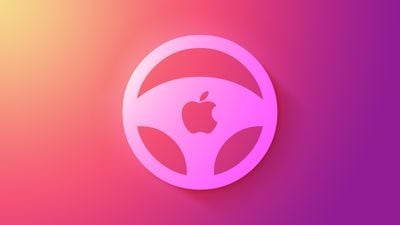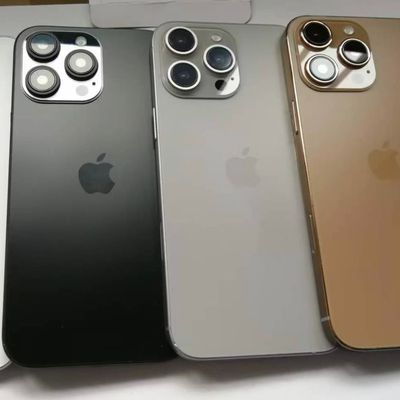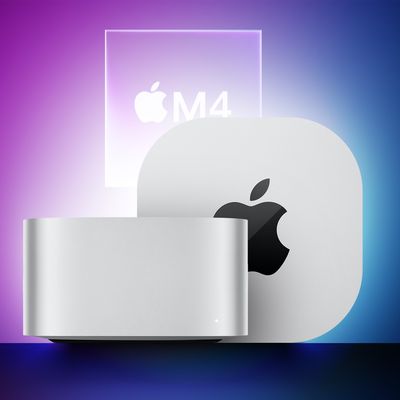Apple Car Hardware Engineer Leaves for Air Taxi Startup
Apple's Car project recently lost one of its engineering directors, with Michael Schwekutsch departing the company to join air taxi startup Archer Aviation.

As discovered by CNBC, Schwekutsch updated his LinkedIn profile to note that he has taken on a role of senior vice president of engineering at Archer. Archer is an aerospace company that is developing an all-electric aircraft that supports vertical takeoff and landing for navigation within cities.
Schwekutsch first joined the Apple Car project in March of 2019, and he served as a senior director of engineering on the special project group, aka the Apple Car team. Prior to that, he was Tesla's vice president of engineering.
Apple's car development has seen continual management shifts over the course of the last few years. Back in September, special projects vice president Doug Field left Apple for Ford after a three-year stint heading up Apple Car development alongside Bob Mansfield and John Giannandrea.
AI chief John Giannandrea is still overseeing Apple Car development, but with Field's departure, Apple recently brought on Apple Watch chief Kevin Lynch to pitch in. Under Lynch's leadership, the Apple Car project is moving ahead, with Apple aiming to produce a fully autonomous electric vehicle. Apple wants to design a self-driving car that does not require human intervention, a goal that car manufacturers have yet to achieve.
Apple is planning to launch a self-driving car within four years with an aggressive launch timeline around 2025, but whether Apple can achieve that goal remains to be seen.
Popular Stories
Leaker Sonny Dickson is back today with a new dummy unit image showing all four iPhone 16 Pro color variants, including the rose gold or "bronze" unit that replaces Blue Titanium in the existing iPhone 15 Pro models. The iPhone 16 Pro models are expected to come in black, white or silver, gray or "Natural Titanium," and a rose or rose gold color replacing Blue Titanium, according to Apple...
Multiple rumors have suggested that the iPhone 16 models are going to have an all-new button that's designed to make it easier to capture photos when the devices are held in landscape mode. Apple calls the button the Capture Button internally, and it is going to be one of the most advanced buttons that's been introduced to date with support for multiple gestures and the ability to respond to ...
Apple typically releases its new iPhone series in the fall, and a possible September 10 announcement date has been floated this year, which means we are just one month away from the launch of the iPhone 16. Like the iPhone 15 series, this year's lineup is expected to stick with four models – iPhone 16, iPhone 16 Plus, iPhone 16 Pro, and iPhone 16 Pro Max – although there are plenty of design...
Apple's iPhone 16 series is expected to debut in September 2024. This release follows Apple's trend of introducing new iPhone models annually in the fall. While the exact date has yet to be officially confirmed, the day of Tuesday, September 10 has been rumored as a possible announcement date, and September has traditionally been the month when Apple unveils its latest smartphone innovations. ...
Apple is moving forward with its project to develop a tabletop robotic device, according to Bloomberg's Mark Gurman. Subscribe to the MacRumors YouTube channel for more videos. The device would feature a large iPad-like display mounted on a "thin robotic arm" that would allow the display to tilt and up and down and rotate a full 360º, and it would serve as a "smart home command center," a...
It's almost September, but Apple still has multiple new product launches planned for 2024. New iPhone 16 models and Apple Watches are coming in September, and we're also going to get at least three Mac updates with M4 chips this year, according to rumors. Here's what's on the horizon. MacBook Pro Apple plans to refresh both the 14-inch and 16-inch MacBook Pro models, adding M4 chips. The ...
T-Mobile was fined $60 million by the Committee on Foreign Investment in the US (CFIUS) for negligence surrounding data breaches, reports Reuters. CFIUS penalized T-Mobile for failing to prevent or disclose unauthorized access to sensitive customer data. When T-Mobile merged with Sprint, it signed a national security agreement with CFIUS, which is what led to the fine earlier this year....
![]()




















